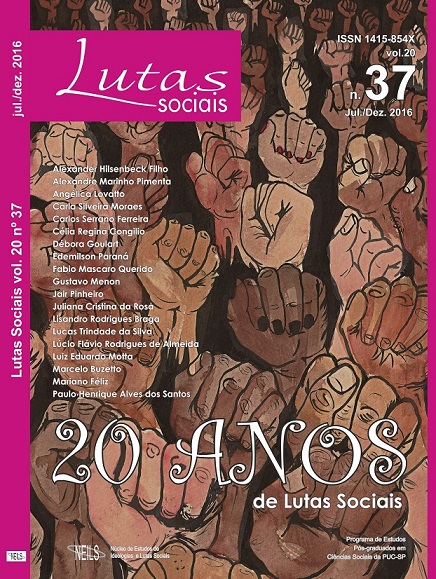Effects of the Naturalization of the Concept of Private Property of Land: The Legitimacy of Land Grabbing and the Invasion of the Marãiwatsédé Indigenous Territory in 1992
DOI:
https://doi.org/10.23925/ls.v20i37.33106Keywords:
Private property of land, invasion and land grabbing, Marãiwatsédé Indigenous Territory.Abstract
This article analyzes how access to land through private property was constructed historically and socially through a process of transformation of common lands, colonial land grants and other regimes of land ownership into commodities. This process assumed different forms but the content remained the same: the expropriation or divestment of lands in the primitive accumulation of capital. These reflections are used to analyze how the seizure of the Marãiwatsédé Indigenous Territory was socially legitimated, through the concept of private property of land as the prime way of bringing “progress” or the “modern” to the northern Araguia region of the State of Mato Grosso.Downloads
Published
2016-12-31
How to Cite
Rosa, J. C. da. (2016). Effects of the Naturalization of the Concept of Private Property of Land: The Legitimacy of Land Grabbing and the Invasion of the Marãiwatsédé Indigenous Territory in 1992. Lutas Sociais, 20(37), 37–50. https://doi.org/10.23925/ls.v20i37.33106
Issue
Section
Articles
License
Matérias assinadas não expressam necessariamente a posição do coletivo da revista e são de exclusiva responsabilidade do(a)s respectivo(a)s autore(a)s.
Ao enviar seus textos, o(a)s autore(a)s cedem seus direitos à Lutas Sociais, que autoriza, com prévia permissão do Comitê Editorial, a reprodução das publicações, desde que conste o crédito de referência.



